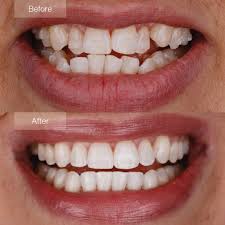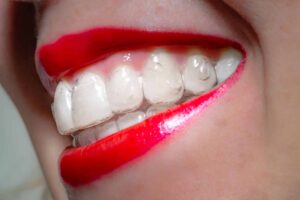Dental Crowns
Dental crowns are custom-made caps designed to cover and restore the shape, size, strength, and appearance of a damaged or decayed tooth. They can be made from various materials, including porcelain, ceramic, metal, or a combination, depending on the specific needs and location of the tooth. Crowns are often used after procedures such as root canals, to protect weak teeth, or to improve the aesthetics of discolored or misshapen teeth. By providing a durable and functional solution, dental crowns help maintain oral health and enhance the overall appearance of a patient’s smile.
Why Choose Dental Crowns?
Here are four reasons to choose dental crowns:
Dental crowns provide strength and support to damaged or weakened teeth, allowing patients to bite and chew effectively without discomfort.
Made from resilient materials like porcelain, ceramic, or metal, dental crowns are designed to withstand significant biting forces and can last many years with proper care.
Crowns can enhance the appearance of discolored or misshapen teeth, blending seamlessly with natural teeth to create a more attractive smile.
Crowns are often used to protect teeth that have undergone extensive decay or trauma, preventing further damage and preserving the tooth’s integrity.
How Do Dental Crowns Work?
Consultation and Evaluation
The process begins with a thorough examination of the affected tooth, including X-rays to assess its condition. The dentist discusses treatment options and determines whether a crown is necessary.
Tooth Preparation
During the first appointment, the dentist prepares the tooth by removing any decay and shaping it to accommodate the crown. This may involve reducing the tooth's size to ensure a proper fit. Local anesthesia is often used to minimize discomfort during this step.
Impression and Temporary Crown
After preparing the tooth, the dentist takes impressions or digital scans to create a custom crown that matches the patient's bite and aesthetic preferences. A temporary crown is then placed to protect the prepared tooth while the permanent crown is being fabricated, which usually takes about one to two weeks.
Crown Placement
In the follow-up appointment, the temporary crown is removed, and the custom-made crown is fitted onto the tooth. The dentist checks for proper fit and bite alignment before permanently bonding the crown in place, ensuring a secure and natural-looking restoration.
Hear from Our Satisfied Patients

“I had a fantastic experience getting a dental crown at ALBGTC! The team was incredibly supportive, walking me through the entire process and making sure I was comfortable every step of the way. The crown fits perfectly and looks completely natural—I’ve received so many compliments on my smile. I’m so grateful for their expertise and care; my confidence is back!”
– Anna M.
“Getting a dental crown at ALBGTC was a game changer for me. I had been dealing with a damaged tooth for too long, and the staff made the whole experience easy and stress-free. The results are amazing—my new crown feels like my own tooth and has restored my ability to eat without worry. I highly recommend ALBGTC for anyone needing dental work!”
– Mark T.

FAQs
Dental crowns can be made from various materials, including porcelain, ceramic, metal (such as gold or stainless steel), or a combination of materials. The choice depends on factors like the location of the tooth, the patient’s preferences, and aesthetic considerations.
With proper care and good oral hygiene, dental crowns can last anywhere from 5 to 15 years or more. Regular dental check-ups also contribute to the longevity of the crowns.
The procedure for placing a dental crown is usually comfortable, as local anesthesia is often used during tooth preparation. Some patients may experience mild discomfort or sensitivity afterward, but this is typically manageable with over-the-counter pain relievers.
Caring for a dental crown is similar to caring for natural teeth. Regular brushing, flossing, and dental check-ups are essential. Patients should also avoid hard foods that could potentially damage the crown.